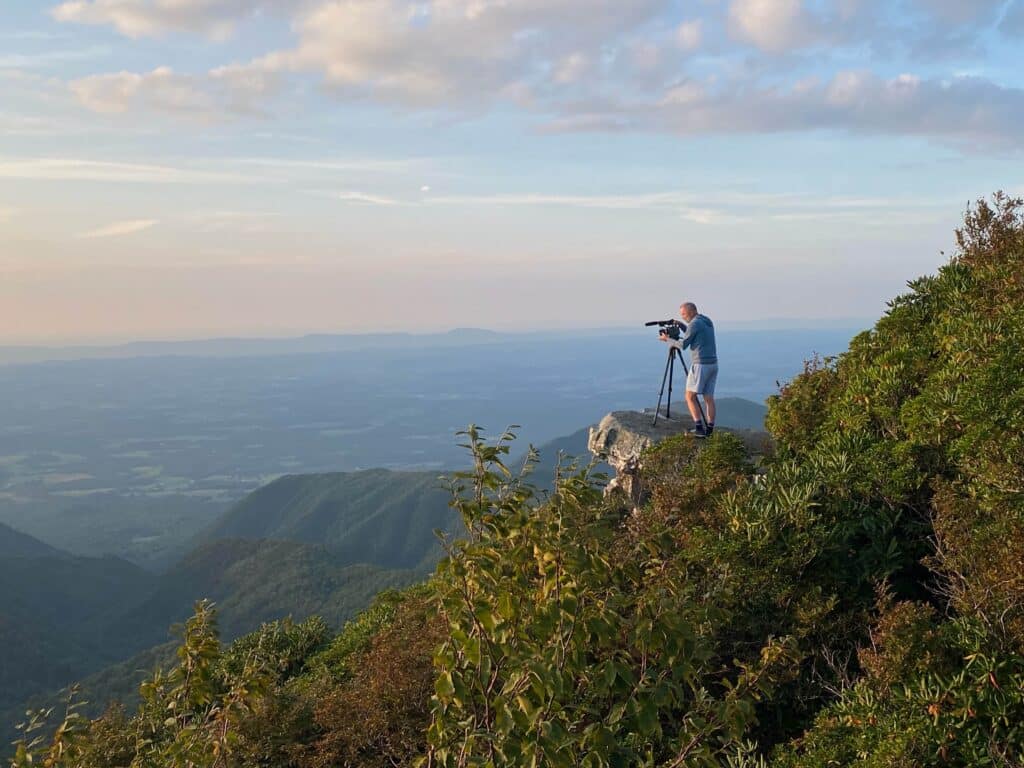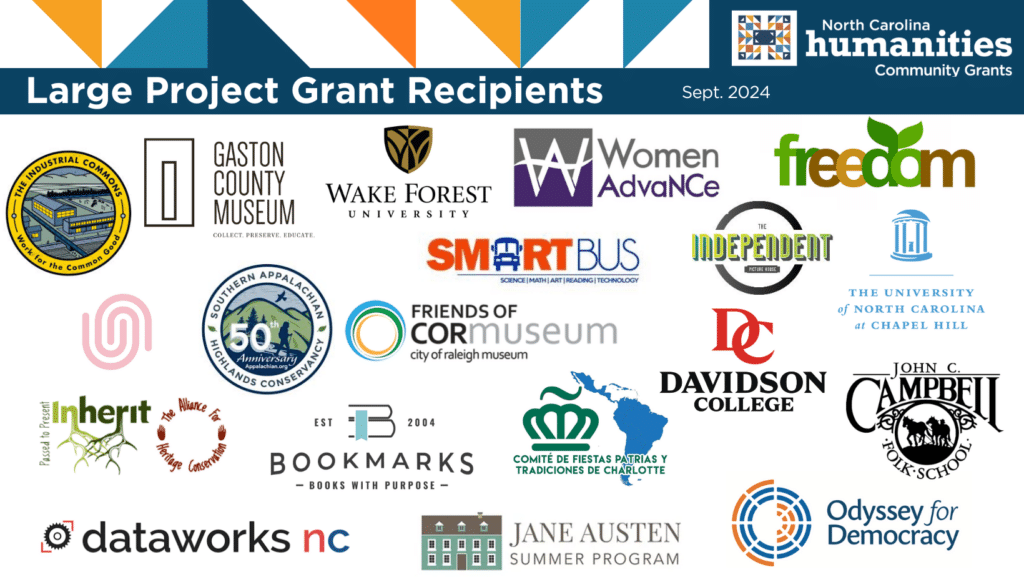(October 30, 2024) CHARLOTTE, N.C. – North Carolina Humanities is pleased to announce the recipients of its annual Large Project Grants. This year, NC Humanities awarded a total of $378,949 to twenty-one public humanities projects that will uplift and uncover stories, cultures, and histories of North Carolinians both past and present.

Among the recipients are projects ranging from a series of interactive workshops focused on Indigenous authors, artists, scholars, and chefs; to oral history collection from African American residents of Washington and the Hispanic community of Charlotte; to book and music festival panels; and to films and walking tours about Western, North Carolina. Each of the awarded projects reflects a commitment to community engagement, cultural preservation, dialogue, and education.
NC Humanities annually provides Large Project Grants of up to $20,000 to nonprofit organizations that use the humanities (literature, history, philosophy, etc.) to raise questions, encourage conversation, contextualize experiences, and connect people across differences in their local communities. NC Humanities offers other humanities project grants of varying funding amounts throughout the year. Grant information and applications for 2025 will be announced later this year. To learn more about NC Humanities’ grants, eligibility, and deadlines, visit https://nchumanities.org/grants.
About North Carolina Humanities: Through public humanities programs and grantmaking, North Carolina Humanities connects North Carolinians with cultural experiences that spur dialogue, deepen human connections, and inspire community. North Carolina Humanities is a statewide nonprofit and affiliate of the National Endowment for the Humanities. To learn more, visit www.nchumanities.org.


